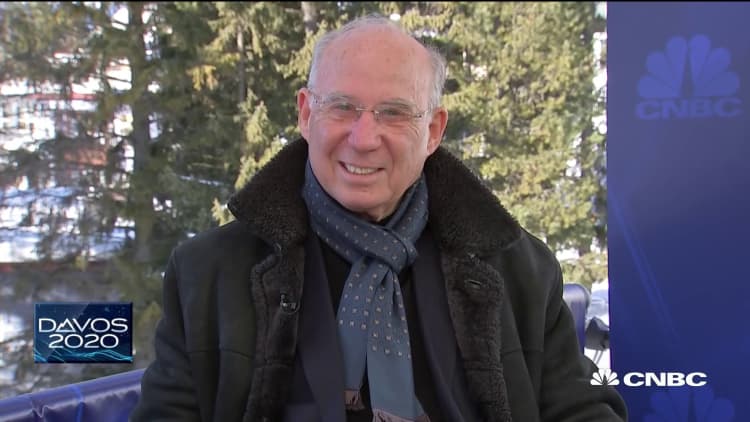
Now is the time for central banks to prepare for the next financial downturn, J.P. Morgan Chase's International chairman said Thursday.
However, By and large this is the time to break toward normalcy and bring forward balance said he does not see a crisis coming.
"By and large this is the time to break toward normalcy and bring forward balance," when economic times are good, Jacob Frenkel said in a CNBC interview on "Squawk Box" from the World Economic Forum in Davos, Switzerland.
"If you push it too close to zero, you have little room to go if the need arises," he said. "This is another reason why you should really prepare for the next crisis."
The U.S. has avoided economic downturn for over a decade now.
In December, the economy logged a record 126 straight months of expansion, the longest time period in the country's history, according to the National Bureau of Economic Research.
"This is a long-term recovery. It's the time to bring normalcy and balance to the policy and the instruments of economic policy," said Frenkel, who served as head of Israel's central bank from 1991 to 2000.
Uncertainty over negative interest rates
Frenkel has long warned about low and negative interest rates being used excessively. When the 2008 financial crisis was at its highest, he said, "it was important to extinguish the fire."
But keeping rates low for too long is "abnormal" and creates "distortions," such as forcing investors into risk assets like stocks as the only way to find returns, he said.
Negative interest rates have been used by central banks in Japan and Europe to try to stimulate their stubbornly stagnant economies. Economists are divided over their effectiveness to reignite growth, and some fear negative rates can keep growth subdued rather than lift it.
"It diverts resources to the financial industry instead of being invested in plants and equipment. It encourages people to take more risk while they search for greater yield, it weakens the financial industry," Frenkel said.
J.P. Morgan Chairman and CEO Jamie Dimon noted similar concerns Wednesday. He told CNBC from Davos that negative rates are one of the only things that concern him in a market that's otherwise in a "Goldilocks place."
"It's kind of one of the great experiments of all time, and we still don't know what the ultimate outcome is," he added.
President Donald Trump has repeatedly praised negative rates despite his top economic adviksor Larry Kudlow reiterating that negative rates don't work.
The president told CNBC in a Davos interview Wednesday, "They get paid to borrow money, something I could get used to very quickly. Love that."
Kudlow, also in Davos appearing on CNBC, said, "All this negative rates and printing money doesn't really work, does it?"
Rather than using low or negative rates, J.P. Morgan's Frenkel said that governments should focus on implementing other policy instruments, "whether it's fiscal or structural policies, including open markets."
The Federal Reserve last year lowered rates by 0.25% three times to a target range of 1.50%-1.75% to inoculate the U.S. economy against headwinds from the China trade war and slowing global growth.
— CNBC's Hugh Son contributed to this report.






